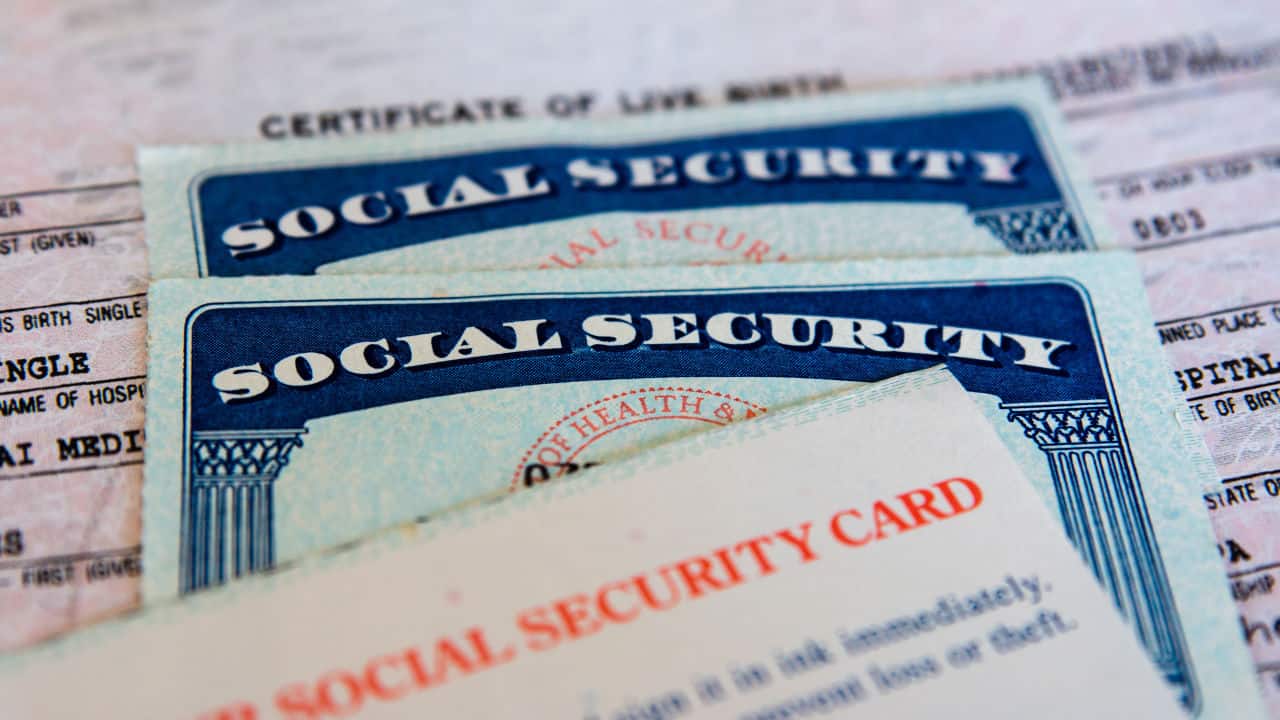THIS POST MAY CONTAIN AFFILIATE LINKS. PLEASE SEE MY DISCLOSURES. FOR MORE INFORMATION.
Retirement is a time to relax, travel, and spend quality time with your loved ones. However, this dream can quickly become a nightmare for many retirees due to common mistakes they make when planning their retirement years.
If you have worked hard throughout your life, you deserve a stress-free retirement, but if you fail to plan well, you could find yourself forced back into the workforce.
In this article, we discuss 24 of the most common retirement mistakes and offer tips on avoiding them so you can make the most of your retirement years.
Whether you are already retired or just planning for your future retirement, it’s never too late to make changes in your retirement plans to ensure a smooth and enjoyable journey.
Table of Contents
1. Not Being Out of Debt

When you work a full-time job, you don’t overthink about having debt, but once you retire and no longer have a steady income to rely on, that changes.
It’s important to pay off any debt you have before retiring, primarily high-interest debts like credit cards, so you will have more control over your finances.
2. You Didn’t Try Out Your Plan

Once you make a retirement plan, give it a spin.
Many people make the mistake of not testing out their retirement plan before retiring, and they soon find out they haven’t planned well enough. They might find the reduced income they planned to live on makes them unhappy.
Or they realize that they are spending way too much, which could impact them in the future.
3. Expensive Hobbies

When you think about retiring, you may think of fun activities you have planned or a hobby you want to pursue, but those can quickly eat into your retirement savings.
If you want to remain in retirement, it’s best to factor in the costs of expensive hobbies when planning for retirement.
Understand we are not suggesting you avoid expensive hobbies if you enjoy them. Instead, find ways to fit them into your budget. For example, if you enjoy golf, try to find a cheaper course, play nine holes instead of 18, or hit the driving range instead of playing a round.
4. Lack of Planning

No one can plan for everything, but looking ahead and having a solid plan will be your best bet in retirement.
If you enter retirement without a plan, you could struggle financially, so take the time to create a solid retirement plan now.
5. Retirement Taxes

You most likely won’t have the same steady income or tax deductions you did before retirement, so don’t overlook the impact taxes can have on your retirement funds.
Make sure to research for yourself and consider hiring a tax professional to help you navigate the tax aspect of retirement. Also, consider moving. Some states tax retirement income, while other states don’t. Moving to a tax-free state could have a tremendous impact on your happiness.
6. Not Enough Savings

So you have diligently saved toward retirement, but how much is enough?
Many experts recommend saving at least ten times your pre-retirement annual income before you decide to retire. Of course, this is a recommendation, not a rule. You can play around with free retirement calculators to better understand how much you need.
If you need more than you have saved, consider working a few extra years or scaling back your retirement plans. At the same time, you should try to figure out how to put as much money towards retirement as possible.
7. You Support Adult Kids

When retiring, many people don’t think about the possibility of their adult children needing financial help.
To avoid this mistake, have a conversation with your kids about setting boundaries for your support and encourage them to become more financially independent.
8. You Put All Your Eggs in One Basket

If you don’t diversify your investments before retiring, you may find yourself back in the workforce if the market fluctuates or you have major investment losses.
It is important to spread your investments across different types of accounts, such as 401(k)s, IRAs, stocks, bonds, and taxable brokerage accounts.
9. Don’t Avoid Risk

While diversifying your investments is critical, too many people think they need to put the majority of their savings into bonds to protect them from losses.
While this is a valid reason, you must remember that more people live longer. When the recommendation was to have all your money in bonds when you retire, the assumption was you would only live ten years in retirement.
Now, people live 20 or 30 years and need to grow savings by investing in equities. So, while you should have money in bonds, make sure you also keep a portion in stocks.
10. Healthcare Costs

As you age, the likelihood of your healthcare cost increasing also increases.
If you haven’t planned for potential medical expenses and purchased health insurance, you may face financial difficulties when unexpected medical issues arise. Should you need to go into a nursing home, this expense could quickly wipe out your savings. Because of this, it is critical to take into account healthcare costs.
11. No Emergency Funds

Emergencies happen, and if you aren’t ready for them, you may have to return to work to cover the expenses.
It is a good idea to have at least three to six months of expenses saved to weather the storm in case of emergencies.
12. No Passive Income

If you plan to rely solely on your retirement savings and social security, you may find that it isn’t enough to allow you to live the retirement life you’ve been dreaming of.
A way to avoid this mistake is to invest in some passive income sources such as rental properties, dividend stocks, or a small business. There are ways to do this without taking on significant risks.
13. Living on Social Security Alone

If you rely on Social Security alone, you will quickly learn that you have made a mistake.
It is important to have other sources of income in retirement, such as savings, investments, a pension, or a part-time job. While Social Security income can be relied on, the annual increase may not keep up with inflation. Worse, as the system struggles financially, cost-of-living adjustments may not be made on a regular basis, further straining retirement.
14. You Relocate

It is hard to plan for the future, especially when it comes to where we want to live.
If you relocate to a new area for a change of scenery or to be closer to family once you retire, you must consider the cost of living there. Plenty of calculators online help you estimate how much more or less it will cost to live in a particular area.
One wise idea is to do a long-term rental in the area first so you can get a better sense of whether it truly is a place you want to live.
15. Aging Parents

As we get older, our parents also age and may need our support.
If you haven’t planned for this scenario, it can be a financial burden on your retirement, and your savings may not be enough. Not only do you need to consider this expense, but you should actively review their finances to help them better handle retirement expenses on their own. Also, by knowing where they stand, you can better plan for yourself.
16. Unwise Investments

If you invest in high-risk ventures or make impulsive decisions with your money, you could lose a significant portion of your retirement savings.
As you plan for retirement, changing your investments to more stable and low-risk options is wise to protect your financial future.
17. Making Major Purchases

Before retiring, you don’t overthink buying a new car or taking a dream vacation.
But when you no longer have a steady income, if you haven’t planned for these purchases, they can quickly deplete your retirement savings.
18. Not Getting an Employer Match for Retirement Savings

If your employer offers a match for your retirement contributions, it is a huge mistake not to take advantage of this benefit.
Not only are you missing out on free money, but you are also decreasing the amount you saved for retirement in the long run. And if you are over 50, the government allows you to contribute more to your retirement plans, so take advantage of this.
19. Inflation Caught Up with You

With the inflation rate constantly rising, factoring this into your retirement plan is important.
If you haven’t considered inflation, you may not have enough savings to cover your expenses once you retire. Historically, inflation has averaged between 2% and 3% annually. But many fear we are not stuck in a higher inflation environment, so it is best to assume a higher inflation rate eating away at your savings.
20. Depending On an Inheritance

You may be making a big mistake if you rely on an inheritance for your retirement savings.
You do not know when you will receive the inheritance, and you also may not know how much your loved ones will leave behind for you. Also, they may have a change of heart and decide to donate the money instead. An inheritance should be treated like a bonus, not a guarantee.
21. You Still Have a Mortgage

One mistake retirees make is not paying off their mortgage before they retire.
If you still have a mortgage and get into a financial bind due to unforeseen circumstances, you may lose your home. Also, your monthly mortgage payment makes up a large portion of your monthly expenses. By having this loan paid off, you decrease your living expenses, which means you need less money saved to enjoy retirement.
22. Falling For a Scam

Retirees are often targeted by scammers who are out to take advantage of their vulnerability.
If you fall victim to a scam, it can wipe out your savings, leave you struggling, and you could have to return to work. Never open emails from people you don’t know. Never trust emails from companies you do business with.
If they ask you to click on a link or verify information, open a new browser tab, type the website in, and check that way.
At the very least, ask a loved one to review the email.
If you get a phone call, hang up and call the company directly. Do not use the number the person gave you.
23. You Retired Too Early

If you retire too soon, you might not have enough money to last you through your retirement years.
While we all want to quit the rat race as soon as possible, the best course of action is to consult with a financial advisor and thoroughly evaluate your finances before deciding about early retirement.
24. Cashing Out Pension Plans

If your employer offers a pension plan that provides a steady income stream during retirement, don’t cash it out early.
You will end up with a significantly reduced amount, which will also have tax implications.
25. Relying on Savings When One Spouse Works

Sometimes, one spouse retires while the other is still working. Relying on savings when you have an income is a big mistake.
Alternatively, you should try to avoid solely relying on the income to live.
Ideally, you want to thread the needle and use the income to save as much as possible and reduce expenses.
If you can do this, you can improve your retirement situation as you will have additional money saved and learn how to live on less.
How To Start Over Financially At 50

It can be difficult to start over financially at any age. But when you are 50, there is added pressure.
Not only do you have a limited number of working years left, but you also see how well others in your peer group are doing.
If you are starting over at 50, don’t give up hope. Here is how to drastically improve your finances.
HOW TO START OVER FINANCIALLY AT 50
Where to Retire on $150K

It sounds like a dream to retire comfortably on $150K but it can be done.
The catch is you have to move overseas.
But you aren’t moving to a dangerous destination.
Rather you are enjoying a beautiful location with a low cost of living.
Here are your best options.
BEST PLACES TO RETIRE FOR $150K
I have over 15 years experience in the financial services industry and 20 years investing in the stock market. I have both my undergrad and graduate degrees in Finance, and am FINRA Series 65 licensed and have a Certificate in Financial Planning.
Visit my About Me page to learn more about me and why I am your trusted personal finance expert.
